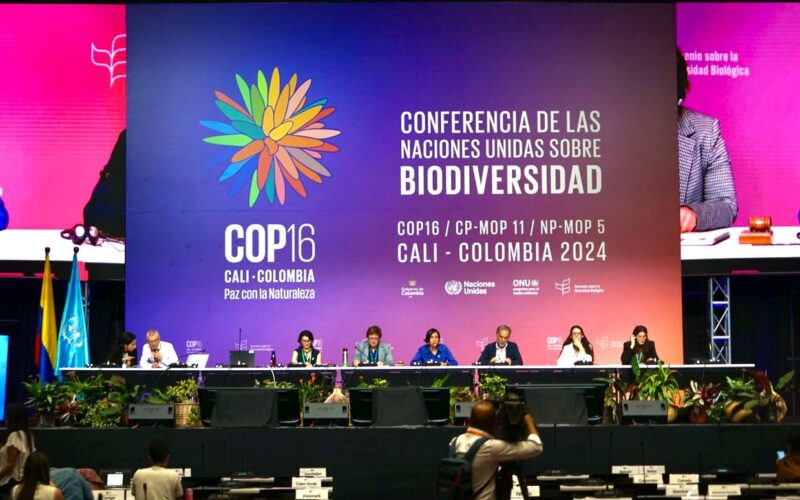The recent UN Biodiversity Conference, COP16, held in Cali, Colombia, has brought the urgency of protecting biodiversity to the forefront of global agendas. The conference has set a new bar for corporate responsibility and expectations for business leaders, investors, and sustainability professionals. COP16’s initiatives and frameworks send a clear message: biodiversity is now a core business issue and an essential part of corporate sustainability.
One of the most groundbreaking outcomes from COP16 was the creation of a permanent Indigenous Consultative Body. This body recognises and includes Indigenous communities in biodiversity decisions, acknowledging their unique knowledge and practices that have protected some of the world’s most biodiverse areas. Indigenous peoples manage roughly 80% of global biodiversity, despite being a minority population. This consultative body provides both recognition and a collaborative platform, allowing companies operating in agriculture, forestry, and mining to engage with Indigenous leaders for sustainable innovation. Partnering with Indigenous communities goes beyond enhancing biodiversity outcomes; it strengthens a company’s social license to operate, fostering trust, respect, and long-term resilience.
COP16 also formally recognised the contributions of people of African descent to biodiversity conservation, aiming to support their role in protecting ecosystems across Africa, the Caribbean, and Latin America. This decision encourages businesses with operations in these regions to foster partnerships with local organisations led by African-descendant communities. Companies that engage with these groups can elevate both conservation efforts and brand reputation. This recognition from COP16 creates an opportunity to support local stewardship of natural resources, strengthening biodiversity and generating socioeconomic benefits for underrepresented communities.
While COP16 saw financial pledges for biodiversity initiatives, the commitments still fall short of the billions needed to reverse biodiversity loss. For private investors, this funding gap signals both a challenge and a unique opportunity. Biodiversity-linked financial products, including green bonds and biodiversity credits, have begun to gain traction, and COP16 underscored the need for private capital to bridge the funding shortfall. For investors, this gap offers attractive impact-driven opportunities in areas like biodiversity restoration and nature-based solutions. Integrating biodiversity into investment strategies enables financial institutions to not only address critical conservation gaps but also mitigate ESG-related risks, appealing to a growing market of impact-focused investors.
Corporate accountability for biodiversity took a bold step forward at COP16 when luxury brand Kering became the first in its industry to adopt science-based targets for nature. These targets reflect a new frontier in corporate biodiversity responsibility, providing a measurable, structured framework for businesses to reduce their impact on biodiversity. This commitment by Kering sends a powerful message to other corporations, setting a benchmark for responsible business practices across industries. Sustainability practitioners can use this development as a model to advocate for science-based biodiversity targets within their organisations, enhancing transparency and credibility.
Transparency and accountability emerged as central themes at COP16, with an emphasis on biodiversity impact disclosures that could shape future reporting standards. Following the Global Biodiversity Framework adopted in 2022, discussions at COP16 focused on implementing and tracking biodiversity goals with rigorous reporting standards. Senior leaders should anticipate stricter biodiversity-related disclosure requirements soon, particularly as regulatory bodies in regions like the European Union push for improved corporate accountability in biodiversity. The EU’s Corporate Sustainability Reporting Directive (CSRD) and European Sustainability Reporting Standards (ESRS) already mandate biodiversity disclosures, and similar standards are likely to follow worldwide. Companies that proactively assess biodiversity risks and impacts across their supply chains can position themselves as leaders in transparency, enhancing investor trust and brand credibility.
COP16 also underscored the power of nature-based solutions (NbS) to address climate change and biodiversity loss simultaneously. Protecting and restoring ecosystems, such as forests, wetlands, and mangroves, offers dual benefits: sequestering carbon and fostering biodiversity. For businesses with high resource dependencies, investing in NbS projects presents an effective way to align environmental objectives with operational resilience. Beyond compliance, prioritising NbS can help companies improve their environmental footprint while attracting favourable policies and potential financing from investors focused on climate and biodiversity outcomes.
As COP16 concludes, it leaves a lasting imprint on the global agenda and on the business community’s responsibilities. Preserving biodiversity is no longer a distant, altruistic ambition; it is an urgent business imperative. COP16 has set a new standard, urging companies to rethink their relationship with the natural world. For senior business leaders, this means embedding biodiversity into the core of their business strategies, operations, and investment plans. Investors are now recognising that biodiversity loss represents a systemic risk, and incorporating biodiversity considerations into ESG analysis is becoming essential.
In the wake of COP16, sustainability practitioners are tasked with integrating nature-positive practices within their organisations, ensuring that biodiversity commitments translate into tangible actions. Leaders who embrace COP16’s call for biodiversity action can help shape a future where business success and environmental stewardship co-exist, proving that corporate growth and conservation are not only compatible but critical to a sustainable future.
COP16 has set the stage, but the path forward requires meaningful action. The time has come to transform these commitments into measurable progress that halts and reverses biodiversity loss. Companies that accept this challenge can emerge as champions in a nature-positive era, demonstrating that business growth and biodiversity protection are essential allies in the journey toward a resilient, sustainable world.
Rajesh Chhabara, Managing Director of CSRWorks International, emphasises, “The outcomes of COP16 underscore that integrating biodiversity into business strategies is no longer optional. Companies that proactively engage with these developments will not only contribute to global conservation efforts but also secure their long-term viability in an increasingly sustainability-focused market.”



















